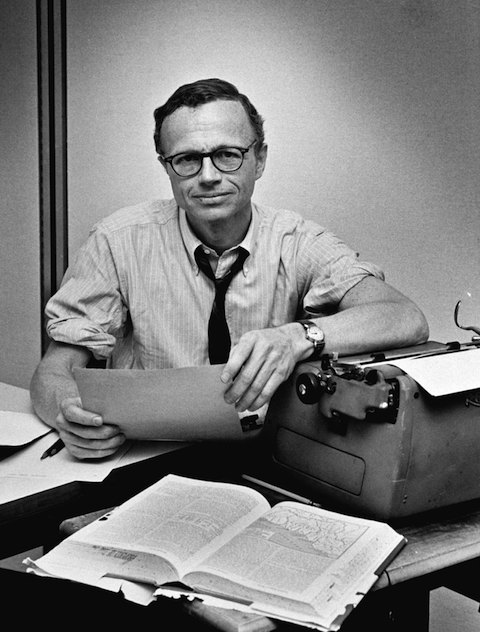The enduring wisdom of William Zinsser

When William Zinsser died in May, his obituaries praised his his book On Writing Well, originally published in 1976. It sold 1.5 million copies and, according to the back cover, was “[c]ited by critics as the natural companion of Strunk and White’s The Elements of Style” (of course). So I read the copy I found for a dollar at a library book sale to see if the advice still holds up.
It does.
Here are a few nuggets that remain very relevant:
My mother was also a person of tremendous humor and optimism. These are the lubricants of writing, as they are in life . . .
Clutter is the disease of American writing. We are a society strangling in unnecessary words, circular constructions, pompous frills and meaningless jargon.
Fighting clutter is like fighting weeds — the writer is always slightly behind.
Who is this elusive creature the reader. He is a person with an attention span of about twenty seconds. He is assailed on every side by forces competing for his time: by newspapers and magazines, by television and radio, by his stereo and videocasettes, by his wife and children and pets, by his house and his yard and all the gadgets that he has bought to keep them spruce, and by that most potent of competitors, sleep.
Use active verbs unless there is no comfortable way to get around using a passive verb. The difference between an active-verb style and a passive-verb style — in pace, clarity, and vigor — is the difference between life and death for a writer.
Most adverbs are unnecessary.
Prune out the small words that qualify how you feel and how you think and what you saw: “a bit,” “a little,” “sort of,” “kind of,” “rather,” “quite,” “very,” “too,” “pretty much,” “in a very real sense,” and dozens more.
[T]ake as much pride in organizing your article as you do in writing it.
To defend what you’ve written [to an editor] is a sign that you are alive.
The longer I work at the craft of writing, the more I realize that there’s nothing more interesting than the truth.
The process of writing — and reading — has changed completely. (Zinsser’s 1986 edition, which is the one I read, includes an delightfully anachronistic chapter on “Writing — and Rewriting — with a Word Processor.”) While the Internet has replaced all the sources of distraction (videocasettes? stereo?), the advice remains sound. Zinsser has left the battlefield, but I am proud to pick up the bloody flag he has dropped and continue to charge forward. Clutter, beware.
Thanks for that photo of Zinsser, who’s still one of my heroes. Anyone who aspires to write anything or to speak about anything really should read “On Writing Well.” I recommend it more than any other book I know.
Dug out my pre-word processor 1976 copy. Not dated in the least. Even so, Josh, it’s great to have a 21st Century Zinsser.